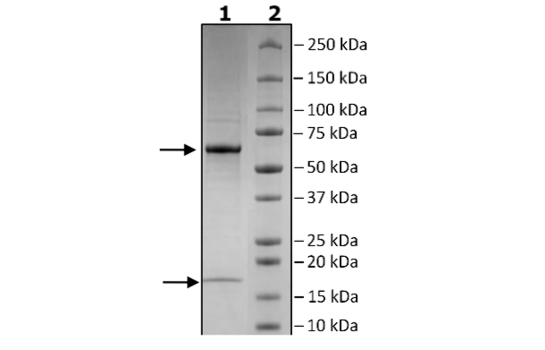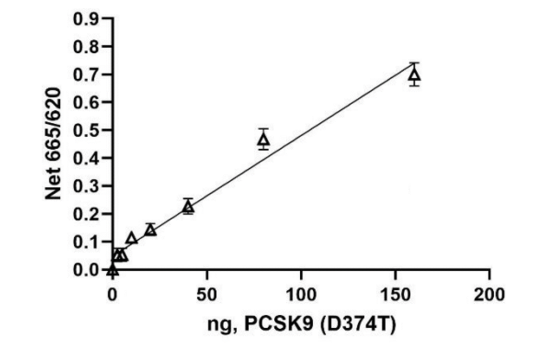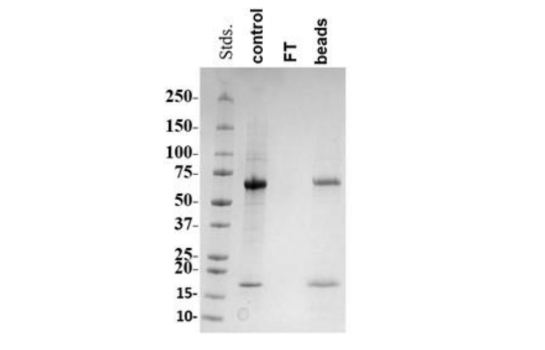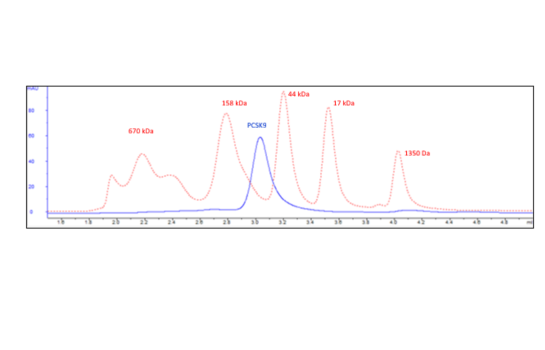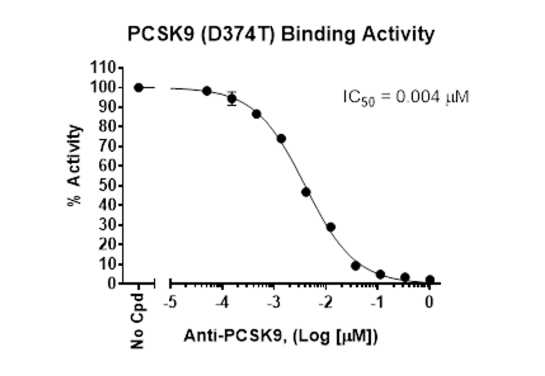PCSK9(D374T), Biotin-labeled, HiP™ Recombinant
Only %1 left
Catalog #
71211
As low as
$320
*
●
●
Purchase
Description
Recombinant human PCSK9 (Proprotein convertase subtilisin/kexin type 9), encompassing amino acids 31-692 (end). The protein contains mutation of interest D374T, and a C-terminal His-tag (6xHis) followed by an Avi-Tag™. The recombinant protein was enzymatically biotinylated using the Avi-Tag™ and affinity purified. HiP™ indicates a high purity protein (≥90% pure) and less than 10% aggregation as measured by gel filtration.
●
Synonyms
Proprotein convertase subtilisin/kexin type 9, FH3, HCHOLA3, PC9
●
Product Data Gallery
Product Info
Storage and Usage
Citations
Species
Human
Construct
PCSK9 (D374T) (31-692(end)-His-Avi)-(Biotin)
Mutation
D374T
Host Species/Expression System
HEK293 Cells
Purity
≥90%
Format
Aqueous buffer solution
Formulation
40 mM Tris-HCl, pH 8.0, 110 mM NaCl, 2.2 mM KCl, and 20% glycerol
MW
Pro: 14 kDa + glycans; Mature: 60 kDa + glycans
Amino Acids
31-692(end)
Glycosylation
This protein runs at a higher MW by SDS-PAGE due to glycosylation.
Aggregation
<10%
Genbank #
NM_174936
UniProt #
Q8NBP7
Label
This protein is enzymatically biotinylated using Avi-Tag™ technology. Biotinylation confirmed to be ≥90%.
For more information on enzymatic biotinylation, please see our Tech Note.
Background
PCSK9 is a crucial player in the regulation of plasma cholesterol homeostasis. It binds to the ectodomain of hepatic low-density lipid receptor family members: low density lipoprotein receptor (LDLR), very low density lipoprotein receptor (VLDLR), apolipoprotein E receptor (LRP1/APOER) and apolipoprotein receptor 2 (LRP8/APOER2), and promotes their degradation. PCSK9 acts via a non-proteolytic mechanism to enhance the degradation of the hepatic LDLR through a clathrin LDLRAP1/ARH-mediated pathway. May prevent the recycling of LDLR from endosomes to the cell surface or direct it to lysosomes for degradation. The D374T mutation results in higher affinity of PCSK9 for LDLR.

